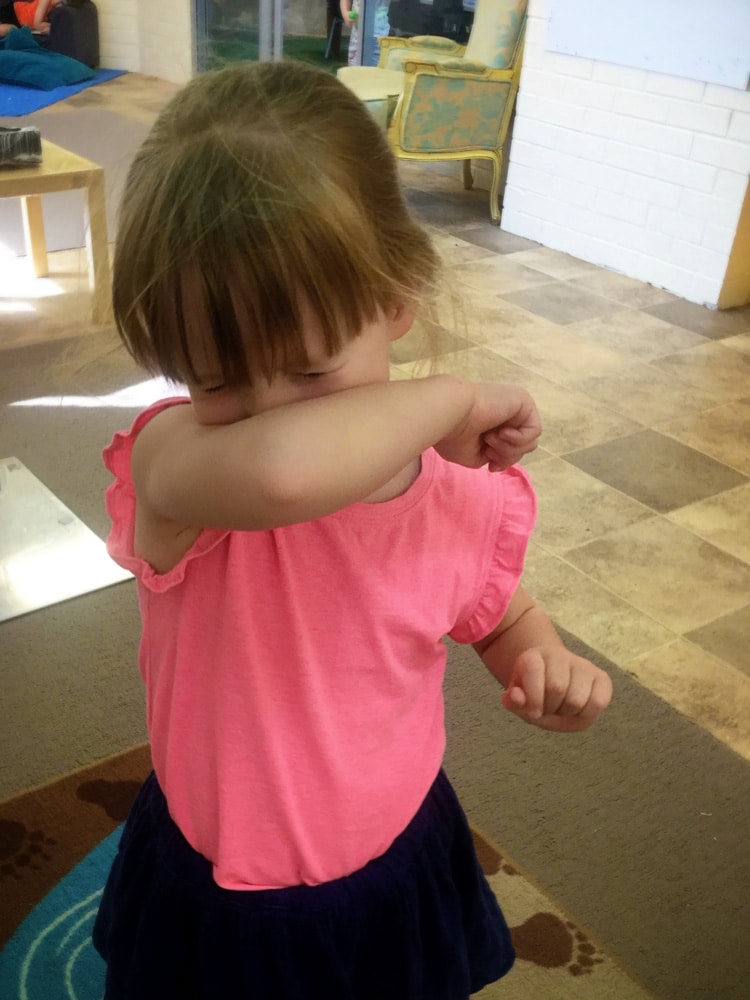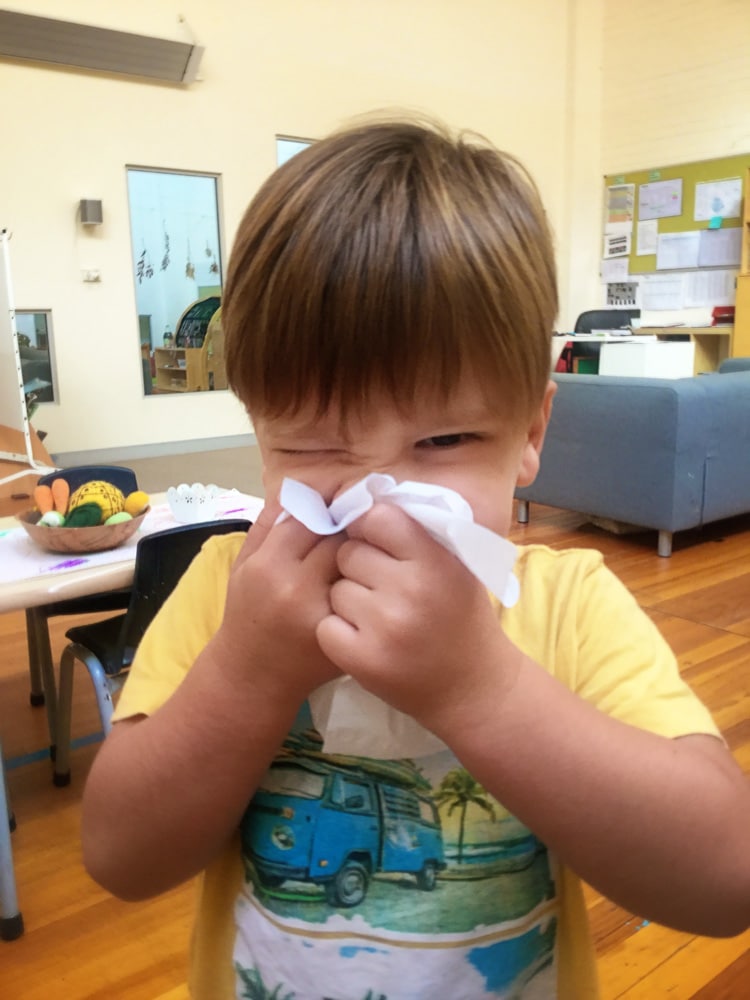

As we move into the colder months of the year, mild colds and cases of Flu will be on the rise in both our educators and your children. It’s important to note that being wet and/or cold will NOT give or increase your chances of getting a cold.
Colds and Flu are more prevalent in winter months as people spend significant time indoors in closer contact with one other. Houses are also less likely to be open to fresh breezes and warming sunshine.
Teaching Personal Hygiene to Children at SOEL
SOEL children are decisive and capable learners. Our children are shown and taught that hand hygiene awareness is an essential everyday practice.
From a young age, SOEL children are supported by educators to exercise their own sense of agency by washing their hands independently. Our children become proper hand washers through positive reinforcement, peer modelling and consistent repetition of all routines involved.
They take pride in being able to wash their hands themselves, and many take an active role in teaching personal hygiene to younger SOEL children. They apply these skills in all of our centre spaces as they gain further responsibility for the resources they use and their own well-being.
Increased Hand Hygiene Awareness
This year we are well-placed as a community to manage Colds and Flus. This is due to increased awareness that consistent handwashing helps minimise transmissions from one person to another.
Due to this, there has been anecdotal reporting of lower numbers of Flu-related admissions in WA Hospitals compared to other years. It is up to us to continue effective personal hygiene habits and minimise our exposure to sick people. SOEL has child care health and devlopment policies and procedures in place to support this, and have done so for many years.
SOEL is here to support you in your return or continuation of work. However, we have an obligation to every child we care for and every educator we employ to provide a safe and healthy place.


Your Child’s Symptoms
There’s no need to worry if your child has a slight temperature—there many reasons for a child to be a bit warm. Rosy red cheeks, chewing madly on a toy, unwillingness to eat, including large amounts of dribble and a slight temp is probably teething. A teething child needs extra attention to detail in the way that we care for them. This is something we are proud to do and have done for the last 46 years.
An ordinarily active child is much more likely to have some sort of a bug if they have:
- A runny nose
- Are not interested in eating
- Is lethargic
- Won’t keep their jacket on during a cold day.
The best place for an ill child is at home.
In the event your child is sick
If your child presents with a temperature, we will do what we can to cool them down. However, if your child’s symptoms do not improve, you will be notified and may need to take them home. You’ll also be called if your child has an extremely runny nose.
This only occurs if we are unable to minimise the risk to children or educators possibly being infected, regardless of what we try and how often we wipe their nose. You may have to come and collect your child.
While we cannot and will not diagnose your child, SOEL’s many years of experience with countless numbers of children and their respective illnesses provide our educators with accurate evaluations. Our comprehensive policies and procedures work together with the application of our collective experiences to offer best practice outcomes for all involved, and most importantly, for your unwell child.
Please reconsider bringing your child to SOEL when they are unwell or are ill the day before they are due to attend. For both the sake of your sick child and the people they may come into contact with.
